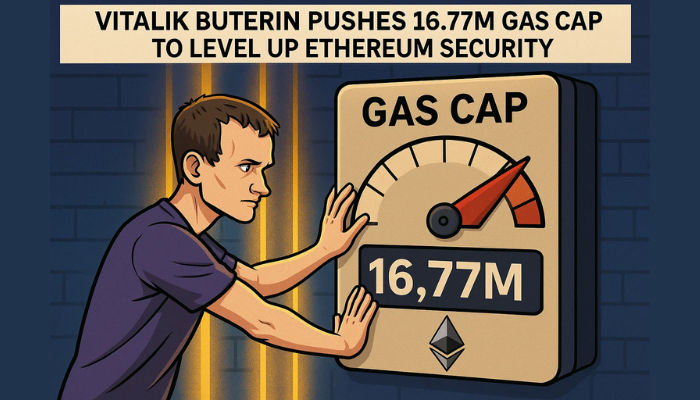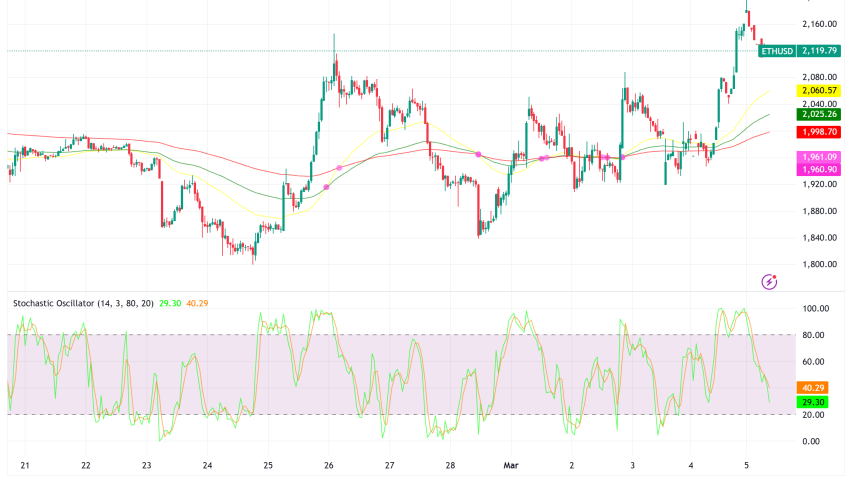Vitalik Buterin Pushes 16.77M Gas Cap to Level Up Ethereum Security
Ethereum co-founder Vitalik Buterin has put forward a new proposal to tighten security and improve the efficiency of the Ethereum blockchain

Quick overview
- Vitalik Buterin has proposed EIP 7983 to enhance Ethereum's security and efficiency by capping transactions at 16.77 million gas units.
- This cap aims to reduce the risk of Denial-of-Service attacks and ensure smoother operation of decentralized applications (dApps).
- EIP 7983 builds on previous proposals and focuses on improving transaction predictability, rollup performance, and parallel execution.
- The proposal will reject transactions exceeding the gas limit, promoting long-term stability and resilience against malicious activities.
Ethereum co-founder Vitalik Buterin has put forward a new proposal to tighten security and improve the efficiency of the Ethereum blockchain. Dubbed EIP 7983, the draft suggests capping transactions at 16.77 million gas units. This targeted change will mitigate the risk of Denial-of-Service (DoS) attacks and bring stability to transaction processing on Ethereum.
Right now a single transaction on Ethereum can use up to the entire block’s gas limit – 30 million units. This leaves room for an attacker to congest the network and slow down or stop it. By capping, EIP 7983 will introduce a safeguard against these vulnerabilities while keeping dApps running smoothly.
Ethereum Foundation researcher Toni Wahrstätter, co-author of the proposal, says most users won’t be affected as the average transaction uses way less gas.
Transaction Efficiency
EIP 7983 is not alone. It builds on previous improvement proposals like EIP 7825 which suggested a 30 million gas limit. Buterin’s new proposal is more aggressive and halves the maximum gas allowance to 16.77 million, creating more predictable execution paths.
This cap will improve the performance of Ethereum’s rollups – layer 2 solutions to increase throughput – and better support parallel transaction execution, a key area of focus for Ethereum’s scalability. The new cap will distribute resources across the network more evenly, so no single transaction can monopolize block capacity.
Key benefits of EIP 7983:
- More predictable transactions
- Better rollups and parallel execution
- Minimized DoS attack surfaces
- No major disruption to dApp operations
Chain Stability
The core logic of Ethereum’s security model will change with this proposal. Any transaction above 16.77 million gas will be rejected, making the chain more resilient to malicious activity.
The proposal also ensures long term chain stability by enforcing clearer resource allocation. According to Buterin, Ethereum must evolve with its growing ecosystem and that includes making its foundation more robust and less abusable.
By imposing stricter transaction rules, EIP 7983 is a quiet but powerful upgrade that improves both security and scalability without affecting most users.
- Check out our free forex signals
- Follow the top economic events on FX Leaders economic calendar
- Trade better, discover more Forex Trading Strategies
- Open a FREE Trading Account
- Read our latest reviews on: Avatrade, Exness, HFM and XM


